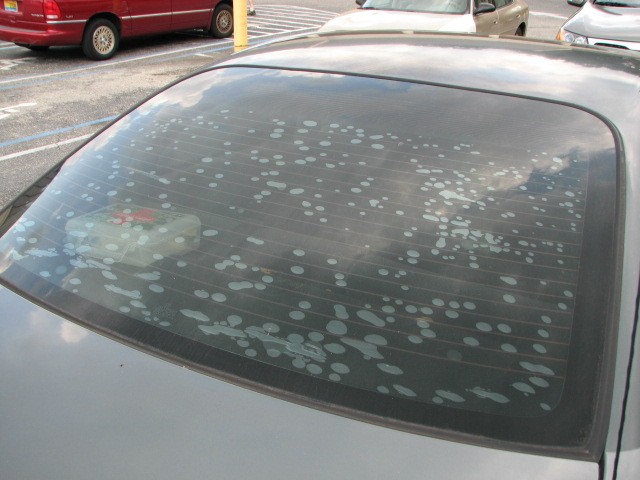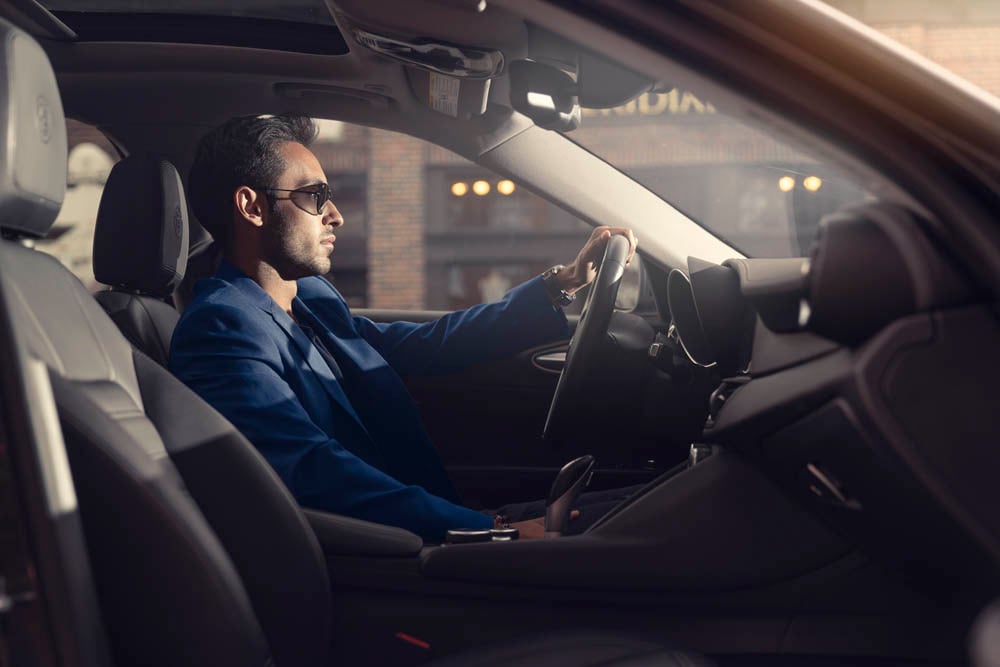Car window tints are no longer seen as an aesthetic accessory, but a necessary one, especially in Malaysia’s hot climate. A window tint not only provides privacy when you’re in your vehicle, but also protects you from glare, heat, and harmful UV rays. With a wide range of tint films in the market, how does one go about selecting the “right” one? Here’s a guide to help you choose the right solar car window tint according to your needs.
What Should You Know About Tinting Your Car Windows?

Visible Light Transmission (VLT)
VLT levels are normally represented in percentage which is equivalent to the percentage of visible light that enters the vehicle window. In other words, with 30 percent VLT, 70 percent of visible light is filtered out while only 30 percent of visible light enters the cabin. The lower the percentage of VLT, the darker the window film since there is less light entering the cabin.
Total Solar Energy Rejection (TSER)
TSER measures the amount of heat that a window tint film blocks out. The heat entering a car through the window comprises 44 percent visible light, 53 percent infrared radiation (IR), and three percent ultraviolet rays. TSER takes into account this ratio to give a more accurate heat rejection value in car tint films. The higher the TSER value, the more heat and solar energy the film is able to block out.
Although having a high heat rejection generally causes the price of a car window tint to increase, car window tints are getting more affordable. In Malaysia, the price of a standard car window tint that blocks out 60 to 95 percent of heat can now range from RM500 to RM1,000.
Read More: Things to Check Before and After a Road Trip
Ultraviolet (UV) Rays
UV rays are a spectrum of electromagnetic waves produced by the sun. Although most of the UV rays are already absorbed by our atmosphere, their concentration outdoors is still high enough to damage our skin and eyes. UV protection is a vital feature in a car window tint, so pay attention to how much UV protection the product provides. Fortunately, most modern window tint films already block out at least 99 percent of UV rays.
Things to Consider when Choosing a Car Window Tint Film
There are various factors to consider when choosing a window tint for your car. Besides just considering the VLT and heat rejection capabilities of a tint film, it’s important to also look at factors such as the quality of the tint film, warranty, and more.
Tint Film Quality

Low-grade, cheap tint films are more prone to color changes, bubbling, warping, and peeling. When any of these happen, you might get reduced performance from your car window tint which translates to more heat in the car.
While low-grade car window tints in Malaysia could cost below RM500, they often don’t last as long and don’t provide the same level of heat protection and security as quality window tints. Depending on the available features on a tint film and its type, the price of a high-quality car window tint in Malaysia can range from RM500 to RM5,000.
Read More: Guide to the Easiest Car Colors to Maintain
Basic Protection Features
As mentioned above, exposing your skin to the sun can lead to skin problems and even skin cancer. To prevent that, it is crucial to carefully select a quality window tint that provides the protection you need.
A basic quality tint film will have UV protection and heat rejection features, while more advanced films even have anti-theft protection making the window hard to break. Most standard car window tints already block out 99 percent of UV rays. So, most of the time, you will only have to consider how dark you want your windows to be and how much heat you want to keep out of your car.
Security Car Window Tints
Besides protecting you from harmful UV rays, car window tints can also prevent your windows from shattering into tiny pieces during an impact. Security films can hold broken glass pieces together and keep them from going airborne which may cause collateral damage and hurt you when an accident or robbery happens.
Security films can prove helpful if you often park in a secluded or crime-prone area as it makes it more difficult and time-consuming for the robber to smash your car windows. Do note that security films are not designed to be totally impenetrable – this is so that rescue operations can take place should you be in a situation where you are trapped in the car.

Tinting Warranty
Most quality car window tints come with a minimum five-year warranty from the manufacturer. In case the film has a defect or starts peeling within the warranty period, the warranty allows you to replace your tint film free of charge. This is also why it is important to only purchase auto films from legitimate authorized dealers.
Before getting your car windows tinted, check the brand’s website for the list of authorized dealers around you. This is to ensure that you will still be covered by your warranty even if that outlet is no longer in business. You should also compare the length and coverage of the warranty as some brands provide a longer warranty period.
Read More: What Do Road & Safety Sign Boards in Malaysia Mean?
Types of Car Window Tints in Malaysia
Before choosing a window tint for your car, you should know what are the types of tint films available in Malaysia and their features. Since different types of tint films have different features, durability, and price, this is an important factor to consider.
1. Dyed Window Tint
A dyed window tint film comprises several layers of dyed film. The dye in the film affects the color, light transmission, and heat rejection of the film. This is the most basic type of tint film and is generally the most affordable. However, it is also more prone to fading and might need replacing after several years. If going for a
dyed window tint, ask the dealer how long it can last and also what is covered in the warranty.
2. Metalized Window Tint
Metalized window tints are popular due to its fairly affordable price and proven quality. A metalized film contains tiny metallic particles that act to reflect heat, light, and UV rays. It generally performs better than dyed tint films and is more scratch-resistant. However, the metallic particles in the film can interfere with GPS and mobile phone signals, RFID Tags, and even your auto gate signal.
Another issue with metalized films is corrosion. Corrosion happens when metal is exposed to water and air, causing a chemical reaction. It affects the appearance of the film and even the heat rejection performance. Over time, the color of the tint might change to purple or brown which eventually affects visibility.
3. Hybrid Window Tint
A hybrid window tint film combines dyed films with metallic particles (usually titanium). It provides the benefits of both dyed and metalized tint films while being more cost-effective and causing less interference to radio signals than metalized films.
4. Carbon Window Tint
A carbon window tint film contains carbon particles and is a step up from metalized tint films. A carbon film is more effective at blocking light and heat, without causing radio signal interference. It also adds a matte look to your windows which gives your car a unique aesthetic. However, carbon window tints tend to cost more than metalized ones.
5. Ceramic Window Tint
Ceramic window tint films are considered the best in the market. They are made with nano-ceramic technology and outperform other types of tint films. A ceramic tint film has better UV ray rejection, sun glare reduction, visibility, and heat rejection. It also causes no radio signal interference and has added structural strength, making it a better choice for security window tints. That being said, ceramic window tints are a premium product which means they have higher prices than other tint films.
Read More: What to Know Before Upgrading Your Car
Car Window Tinting Rules & Regulations in Malaysia

In 2019, the Road Transport Department (JPJ) has updated the regulations on car window tinting. With the current regulations, vehicles are allowed to have 70 percent VLT on for the windscreen, 50 percent VLT on the front side windows, and unrestricted VLT on the rear windows. However, a darker film does not necessarily reflect heat better than a clear film. Heat rejection is calculated based on TSER. So, when choosing a film to cool your car, keep in mind that a darker tint doesn’t mean better heat rejection.
Choose CARSOME for Peace of Mind
If you’re looking for a reliable, quality car, check out CARSOME . All CARSOME Certified cars are put through a 175-point inspection to rule out major accidents and flood damage. We also professionally refurbish our cars to give them safety beyond standards, complete comfort, and a refurbished aesthetic.
Additionally, each CARSOME Certified car includes
- A five-day money-back guarantee in case you change your mind.
- A one-year warranty to ensure further peace of mind.
So what are you waiting for? Visit CARSOME today to find the perfect car for you!
